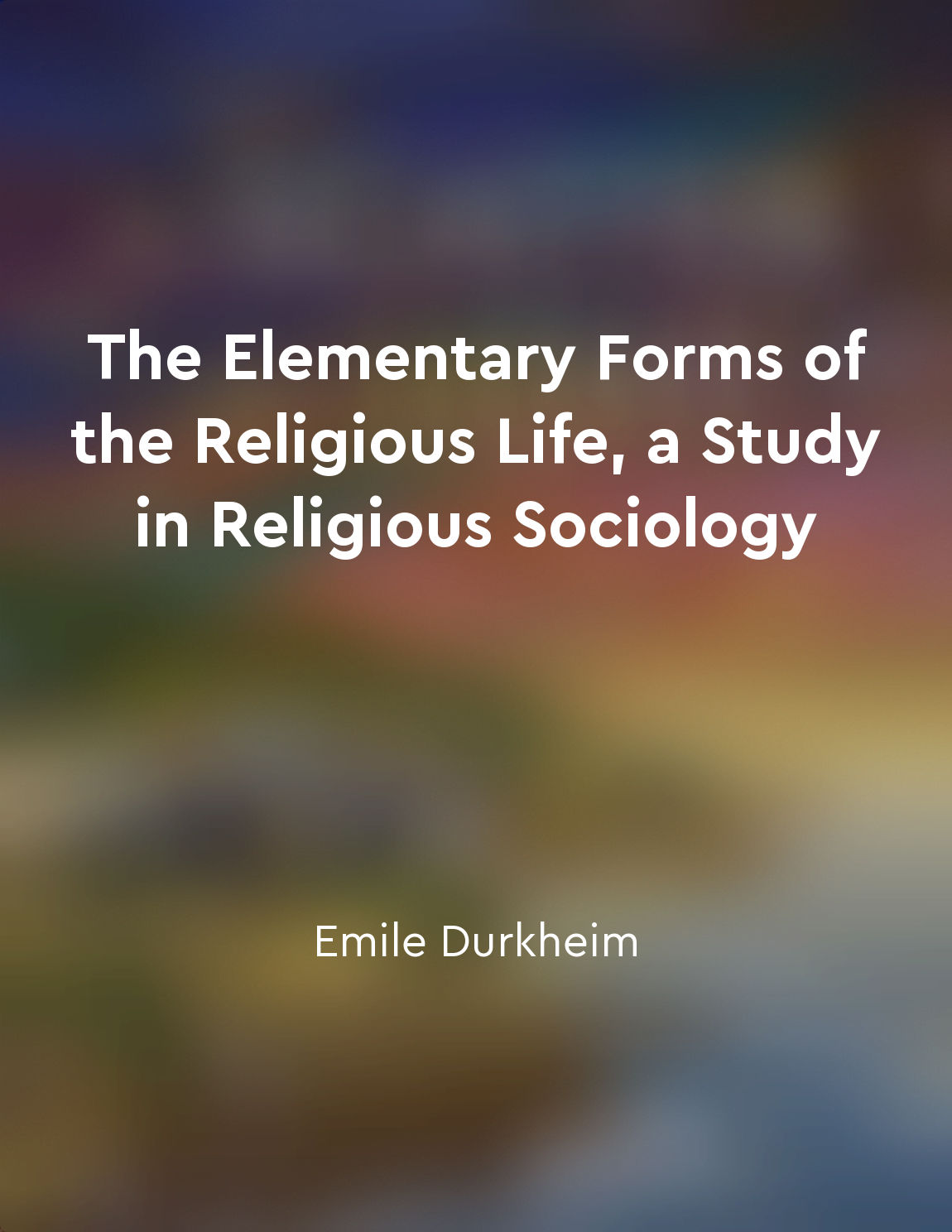Religious beliefs have a social origin from "summary" of The Elementary Forms of the Religious Life, a Study in Religious Sociology by Emile Durkheim
The idea that religious beliefs have a social origin is central to the study of religious sociology. According to Durkheim, religion is not simply a product of individual experiences or personal beliefs, but rather a collective phenomenon that emerges from the interactions and shared experiences of members within a society. In other words, religious beliefs are not solely the result of personal reflection or introspection, but are shaped and influenced by the social context in which individuals are embedded. Durkheim argues that religious beliefs serve to reinforce the social bonds that hold a community together. Through shared rituals, symbols, and practices, members of a society are able to come together and reaffirm their common values and beliefs. In this sense, religion can be seen as a form of social glue that helps to maintain social cohesion and solidarity. Furthermore, Durkheim contends that religious beliefs are a reflection of the collective consciousness of a society. This collective consciousness is the set of shared beliefs, values, and norms that shape the way individuals perceive the world and their place within it. Religious beliefs, therefore, are a manifestation of this collective consciousness and serve to reinforce and uphold the moral order of society. Durkheim also emphasizes the role of rituals in shaping religious beliefs. Rituals are collective practices that serve to symbolize and reinforce the beliefs and values of a society. Through participation in rituals, individuals are able to connect with the sacred and reaffirm their commitment to the social group. In this way, rituals play a key role in shaping and perpetuating religious beliefs within a society.- Durkheim's analysis of the social origins of religious beliefs highlights the importance of considering the broader social context in which religion operates. By recognizing the role of society in shaping and influencing religious beliefs, we can gain a deeper understanding of the ways in which religion functions as a social institution that helps to maintain social order and cohesion.


